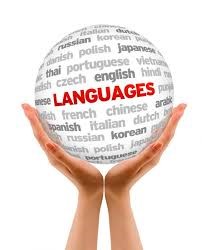At PSPC, we understand that learning another language creates more positive attitudes and less prejudice toward people who are

different. Dealing with another culture enables students to gain a more profound understanding of their own culture. Creativity is increased with the study of a second language and it helps improve skills and grades in Maths and English.
With our motto of 'Pathways to Opportunity', we are centred on the child and how we can support them to be the best they can be. Learning a second language provides a competitive edge in career choices, opening the door to art, music, dance, fashion, cuisine, film, philosophy, science and so much more.
To support our student's long term learning growth, we have followed our neighbouring high school, Pimpama State Secondary College, in choosing Chinese as our student's second language. Our partnership with PSSC means that we share a Chinese teacher, making the transition to high school much easier with familiar faces.

The Chinese Language is the most spoken language in the world. Not only is Chinese spoken in China, but it's also spoken in Singapore and Taiwan. Chinese speaking people are living all across the world and if you're a professional, it's more than likely that one of your clients, suppliers or colleagues will speak Mandarin. Not only does China have one of the most important economies in the world, but interest in the language and culture is growing. Companies and individuals are in need of professionals who understand Mandarin Chinese. The Chinese language is the official language in six countries and it's one of the six official languages of the United Nations. The growth that China is experiencing is expected to continue.

The Chinese culture is amongst the most eye-opening and intricately woven cultures in the world.. When students learn Mandarin, not only do they learn the language, but they learn the Chinese way of life too. These experiences and language skills deepen our students' personal growth.
The Chinese language utilises areas of the brain that other languages do not. Studies have been done showing that learning Chinese takes intensive brain power. English speakers use the left temporal lobe. Mandarin speakers use both! In addition to using both sides of the temporal lobe, bilingual people are better at prioritising and multitasking than monolingual people.
By learning Chinese, our students easily get to know Chinese culture and how the different grammar structures represent the logic that Chinese people use to think. All phrases and expressions show the way Chinese people handle relationships. Through the magic Chinese language and characters, students learn how this society has been formed. |